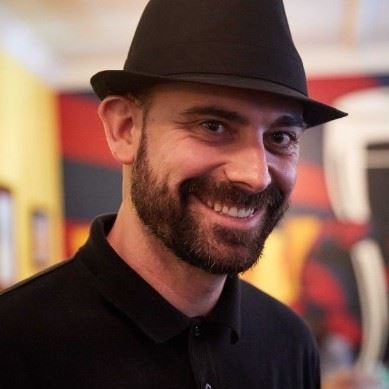ZOOM Chapter Meeting
Treating Attachment Wounds in Children & Adults
Through a Neurosequential Lens
Nathan Swaringen, LCSW

Course Description
This is a two hour two CEU training designed to provide didactic and experiential learning to mental health workers who provide mental health services to high acuity individuals of various age ranges who present with behavioral, social-emotional, and psychological impairments that are rooted in acute or complex developmental trauma and attachment disruption. The goal is to teach participants, through a neurosequential lens, about the neurobiology of trauma and attachment, and how traumatic stress and attachment disruption impacts brain development and subsequent functional impairment; as well as how to clinically assess, case conceptualize, and implement best practice interventions.
Learning Objectives
1. After the session, participants will be able to accurately identify at least three behavioral/social-emotional/psychological mental health impairments through a neurosequential attachment and trauma-informed lens.
2. After the session, participants will be equipped to integrate a neurosequential attachment and trauma-informed lens into completion of a biopsychosocial assessment and treatment/care plan for mental health services.
3. After the session, participants will be able to implement at least three attachment and trauma-informed treatment interventions based upon neurosequential principals.
Agenda
9:15 to 9:45am -Introduction of Neurosequential model and definitions of trauma
9:30 to 10:00am –Neurosequential brain development and neuroscience of trauma and attachment; interpersonal neurobiology
10:00 to 10:30am –Mental health impairments through a neurosequential attachment and trauma-informed lens
10:30 to 11:00am –Neurosequential concepts for intervention in trauma-related attachment disruptions (state dependence, intimacy barrier, specificity neuroplasticity, regulate->relate->reason)
11:00 to 11:15am –Experiential activity: Relational Reward Profile
11:15 to 11:30pm –Audience Questions
Biography
Nathan Swaringen, LCSW, is a Licensed Clinical Social Worker currently working at The Guidance Center in Long Beach as developer and program coordinator of It’s About T.I.M.E. (Trauma-Informed Movement in Education). Certified in Child Trauma Academy's Neurosequential Model in education, Nathan provides trauma-informed training and consultation to schools in Long Beach Unified School District. Previously, Nathan worked as a school-based therapist at The Guidance Center, with over 12 years of experience as a clinician in children's mental health programs. He has extensive training and experience in the areas of Play Therapy, Attachment, and Trauma-Informed care. He has provided trainings on these topics for Los Angeles County DMH, residential treatment facilities, foster care agencies, California Association for Play Therapy, and many Southern California area schools.
Bibliography
Beeghly, M & Perry, B & Tronick, E (2016) Self-regulatory Processes in Early Development.Oxford Handbook of Treatment Processes and Outcomes in Psychology (3) 42-54
Dunn, E & Nishimi, K & Powers, A & Bradley, B (2017) Is Developmental Timing of Trauma Exposure Associated with Depressive and Post Traumatic Stress Disorder Symptoms In Adulthood? Journal of Psychiatric Research (84) p 119-127
Levine, P. & Kline, M. (2007). Trauma through a child’s eyes: Awakening the ordinary miracle of healing. Berkeley, CA: North Atlantic Books.
Lucero, I (2018) Written in the Body? Healing the Epigenetic Molecular Wounds of Complex Trauma Through Empathy and Kindness. Journal of Child & Adolescent Trauma 11(4) p 443-455
Perry, B. D., & Szalavitz, M. (2006). The boy who was raised as a dog and other stories from a child psychiatrist's notebook: What traumatized children can teach us about loss, love, and healing. New York, NY, US: Basic Books.
Read, J & Fosse, R & Moskowitz, A & Perry, B (2014) The Traumagenic Neurodevelopmental Model of Psychosis Revisited. Neuropsychiatry 4(1) p 65-79
Van Der Kolk, B. A. (2014). The Body Keeps the Score: Brain, Mind, and the Body in the Healing of Trauma. New York: Viking.
Meetings Are Now FREE
For Members Who Pre-Register!
Participants Will Receive 2 CEU's Via Email
- 9:00 A.M. Announcements from President & Members
- 9:15 A.M. Presentation Begins
- 11:15 A.M. Presentation Ends
- Board Meeting Begins immediately following the Presentation
For questions regarding CEU's contact Diane Bagatourian,
Co-VP Programs: Diane@clearrecoverycenter.com